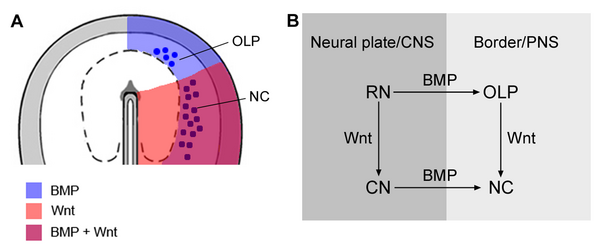The human nervous system consists of the brain and spinal marrow, which constitute the central nervous system (CNS), and sensory nerve cells that comprise the peripheral nervous system (PNS).
Information from our surroundings-sight, smell, hearing, etc.-are transmitted from specific sensory nerve cells in the PNS to the central nervous system, where it is processed and governs our response. These processes require the two nervous systems to be functionally connected.
It is known that this connectivity is established during the fetal stage, but only now have researchers at Umeå University in Sweden identified the signals that govern how the development of the central and peripheral nervous system is coordinated in time and space.

A research team at Umeå Center for Molecular Medicine has identified the signals that coordinate the early development of the central and peripheral nervous systems during the fetal stage. This is of great importance to our understanding of how the central and peripheral nervous systems are linked together into a functioning system.
Previous results provided evidence that at the late gastrula stage, graded Wnt signals impose rostrocaudal character on neural plate cells, and Bone Morphogenetic Protein (BMP) signals specify olfactory and lens placodal cells at rostral forebrain levels.
By using in vitro assays of neural crest and placodal cell differentiation, the researchers provide evidence that Wnt signals impose caudal character on neural plate border cells at the late gastrula stage, and that under these conditions, BMP signals induce neural crest instead of rostral placodal cells. They also provide evidence that both caudal neural and caudal neural plate border cells become independent of further exposure to Wnt signals at the head fold stage.
Thus, the status of Wnt signaling in ectodermal cells at the late gastrula stage regulates the rostrocaudal patterning of both neural plate and neural plate border, providing a coordinated spatial and temporal control of the early development of the central and peripheral nervous systems.
Reference: Patthey, C., Gunhaga, L. and Edlund, T. Early development of the central and peripheral nervous systems is coordinated by Wnt and BMP signals. PLoS ONE 3(2): e1625. doi:10.1371/journal.pone.0001625




Comments